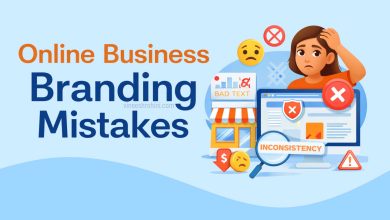Online Business Idea – Earn 2000 Rs While You Sleep | Low Investment Online Business Idea
Online Business Idea
you can earn money even while you sleep. One such lucrative and low-investment opportunity is starting your own job portal. By creating a “Job Portal – Jobs Listing and Resume Builder – Website and Admin Panel,” you can tap into the ever-growing demand for job listings and resume building services. This comprehensive essay will guide you through the process of setting up and monetizing a job portal, highlighting its benefits, required investments, and steps to get started.
Introduction to the Job Portal Business
A job portal is an online platform where employers post job openings and job seekers search for opportunities. It serves as a bridge between employers looking for the right talent and job seekers searching for suitable employment. The job portal industry has seen significant growth due to the increasing reliance on the internet for job searches and recruitment processes. By starting a job portal, you can cater to this demand and create a profitable business.
Benefits of Starting a Job Portal
Starting a job portal comes with numerous benefits, making it an attractive business idea. Some of the key advantages include:
1. Low Investment
One of the primary benefits of starting a job portal is the low initial investment required. Unlike traditional businesses that need significant capital for inventory, physical space, and staffing, a job portal primarily requires investment in a website and basic marketing. With platforms like Netwale offering a ready-made job portal for just Rs. 1000, the entry barrier is minimal.
2. High Demand
The demand for job portals is consistently high as job seekers and employers alike prefer the convenience and reach of online platforms. With a well-designed portal, you can attract a steady stream of users, ensuring consistent traffic and engagement.
3. Passive Income
Once your job portal is set up and running, it can generate passive income. You can earn money through various channels such as advertisements and premium job listings, allowing you to make money even while you sleep.
4. Flexibility
Running a job portal offers flexibility in terms of working hours and location. As long as you have internet access, you can manage your portal from anywhere, making it an ideal business for those seeking work-life balance.
Also Read… Online Business – Best 5 Online Business Ideas You Can Start with Your Mobile Phone
5. Scalable Business Model
A job portal has a scalable business model. As your user base grows, you can expand your services, add new features, and increase your revenue streams. The scalability ensures long-term growth and sustainability.
Monetizing Your Job Portal
Monetizing a job portal can be done through several effective strategies. Here are some of the primary ways to generate revenue from your job portal:
1. Advertisements
One of the most straightforward ways to monetize your job portal is through advertisements. You can display ads from various companies and earn revenue based on clicks or impressions. Google AdSense is a popular choice for integrating ads into your website. Additionally, you can offer banner ads and sponsored posts to companies looking to promote their products or services.
2. Premium Job Listings
Another lucrative revenue stream is charging employers for premium job listings. While basic job postings can be free, you can offer featured listings that appear at the top of search results or on the homepage for a fee. Employers are often willing to pay for enhanced visibility and quicker responses from job seekers.
3. Resume Building Services
Incorporate a resume builder tool into your portal and offer it as a premium service. Job seekers can create professional resumes using your tool for a fee. You can provide different pricing tiers based on the features and templates offered.
4. Subscription Plans
Introduce subscription plans for job seekers and employers. Job seekers can subscribe to receive exclusive job alerts, career advice, and access to premium resources. Employers can subscribe to post unlimited job listings, access a resume database, and receive recruitment analytics.
5. Affiliate Marketing
Partner with companies offering products or services related to job hunting and career development. You can earn commissions by promoting their offerings through affiliate marketing. This can include online courses, career counseling services, and job preparation tools.
Account demo:
Admin => email: admin@admin.com | pass: admin@admin.com
Candidate => email: candidate@candidate.com | pass: candidate@candidate.com
Employer => email: employer@employer.com | pass: employer@employer.com
Setting Up Your Job Portal
Setting up a job portal involves several steps, from selecting a niche to launching the website. Here’s a detailed guide to help you get started:
1. Identify Your Niche
To stand out in the competitive job portal market, it’s essential to identify and focus on a specific niche. This could be industry-specific (e.g., tech jobs, healthcare jobs), location-specific (e.g., jobs in Mumbai), or demographic-specific (e.g., jobs for fresh graduates). A niche approach allows you to tailor your platform to meet the unique needs of a specific audience, making it more appealing and effective.
2. Choose a Platform
Select a platform to build your job portal. You can either create a custom website or use a ready-made solution like the one offered by Netwale. A ready-made solution can save time and effort, allowing you to focus on customization and content rather than technical aspects.
3. Domain and Hosting
Register a domain name that reflects your business and is easy to remember. Choose a reliable hosting provider to ensure your website is fast, secure, and accessible. Many hosting providers offer packages specifically designed for job portals, which include necessary features like SSL certificates and daily backups.
4. Website Design and Development
Design your website to be user-friendly, intuitive, and visually appealing. Key features should include:
- Job Listings: A searchable database of job openings with filters for location, industry, and job type.
- Resume Builder: An easy-to-use tool for job seekers to create professional resumes.
- Employer Dashboard: A portal for employers to post jobs, manage applications, and access analytics.
- Job Seeker Dashboard: A portal for job seekers to apply for jobs, track applications, and receive job alerts.
- Blog/Resource Section: Provide valuable content such as career advice, interview tips, and industry news.
If you’re using a ready-made solution like Netwale’s job portal, much of this functionality will be pre-built, requiring you to customize it to your brand’s needs.
5. Content Creation
Create compelling content to attract and retain users. This includes job listings, blog posts, and guides. High-quality content improves your search engine ranking and establishes your portal as a trusted resource in your niche.
6. Marketing and Promotion
Promote your job portal through various channels to attract users. Effective marketing strategies include:
- Search Engine Optimization (SEO): Optimize your website for search engines to improve organic traffic.
- Social Media Marketing: Use platforms like LinkedIn, Facebook, and Twitter to reach a broader audience.
- Email Marketing: Send newsletters and job alerts to keep users engaged.
- Paid Advertising: Invest in Google Ads and social media ads to drive traffic to your portal.
Managing and Growing Your Job Portal
Once your job portal is up and running, it’s crucial to manage it effectively and focus on growth. Here are some tips for managing and growing your job portal:
1. Monitor Analytics
Regularly monitor your website’s analytics to understand user behavior, track performance, and identify areas for improvement. Tools like Google Analytics provide valuable insights into traffic sources, user engagement, and conversion rates.
2. Engage with Users
Engage with your users through regular communication. Respond to inquiries, provide support, and seek feedback to improve your platform. User engagement fosters loyalty and encourages word-of-mouth promotion.
3. Update Job Listings
Ensure that job listings are up-to-date and relevant. Remove expired listings and actively seek new job postings from employers. Fresh and relevant content keeps job seekers returning to your portal.
4. Expand Services
As your user base grows, consider expanding your services. This could include offering online courses, career counseling, or recruitment services. Diversifying your offerings adds value to your platform and opens up additional revenue streams.
5. Foster Partnerships
Build partnerships with companies, educational institutions, and industry organizations. These partnerships can provide exclusive job listings, promote your portal, and enhance your credibility.
Conclusion
Starting a job portal is a viable and profitable online business idea with low investment and high potential returns. By leveraging technology and strategic planning, you can create a platform that connects job seekers and employers, offering valuable services and generating passive income. With minimal documentation, competitive features, and scalable opportunities, a job portal business can be a rewarding venture that allows you to earn money even while you sleep.
Disclaimer
While starting a job portal offers significant potential, success depends on several factors, including market demand, competition, and effective management. Ensure that you conduct thorough market research, plan strategically, and continuously adapt to changing trends and user needs. Seek professional advice if needed and be prepared to invest time and effort to build and grow your business.



